
No Future Without Forgiveness
With a clarity of pitch born out of decades of experience, Tutu shows readers how to move forward with honesty and compassion to build a newer and more humane world.

“Practicing forgiveness can produce dramatic transformations in our imaginations and the psychological, social, and political horizons of our lives.”
— L. Gregory Jones
Thoughts and questions to help you consider this practice
Forgiveness involves us in a whole way of life that is shaped by an ever-deepening friendship with God and with other people. The central goal of this practice is to reconcile, to restore communion — with God, with one another, and with the whole creation.
L. Gregory Jones writes, "Forgiveness works through our ongoing willingness to give up certain claims against one another, to give the truth when we access our relationships with one another, and to give gifts of ourselves by making innovative gestures that offer a future not bound by the past."
Almost all of us yearn for resolution to unresolved conflicts. Incidences of horrifying evil make us wonder how forgiveness can make a difference. It even takes courage to forgive in smaller, day-to-day conflicts. What do you remember of situations where forgiveness did not happen? How does your experience color your notion of forgiveness in general?
Even if we understand forgiveness as the right response, what if we don't really want it? How can we pray with integrity, "Forgive us our sins, as we forgive those who sin against us"? What difference do you suppose it makes if the goal of forgiveness is restoring communion rather than dealing with guilt?
Forgiveness does not merely refer backward to the absolution of guilt; it also looks forward to the restoration of community. What part might forgiveness play in breaking cycles of violence and abuse in our families and our communities? How do we explain our fascination with violence and hatred in the media?
Part of the problem of wanting to practice forgiveness is that we are often less sure of what we love than of what we hate. When have you noticed someone retaliating by choosing self-destruction over reconciliation?
Anger is a sign that something needs to change. When might bitterness and hatred seem justified? When might anger lead to appropriate resistance and insistent action for change? What is the danger even in righteous indignation?
Forgiveness begins with God's love. What do we learn about the shape of God's forgiveness through the parables of the lost coin, the lost sons, and the lost sheep (Luke 15)? How do Jesus' own ministry, death, and resurrection testify to the character of God's forgiveness?
It's easy to see how revenge can become a vicious circle, how it can become habitual. But what if forgiving seventy times seven (Matthew 18:21-22) could make forgiveness habitual? How do regular liturgical practices and prayers of confession, the kiss of peace, washing feet, baptism, and assurances of pardon till the ground for planting forgiveness and making it habitual?
Even a forgiving community has boundaries, especially when forgiveness is abused. What boundaries are evident in the parable of the merciless servant (Matthew 18:23-35)? When might reconciliation require separation? What boundaries does your community set to guard against abuse of forgiveness?
We need to unlearn those things that divide and destroy communion, and instead learn to live as forgiven and forgiving people. How do people who have experienced forgiveness react when others make mistakes? When have you seen vengeance averted in creative ways? How can we avoid reproducing violence and still take seriously people's responsibilities for their actions?
"Then Peter came and said to Jesus, 'Lord, if another member of the church sins against me, how often should I forgive? As many as seven times?' Jesus said to him, 'Not seven times, but, I tell you, seventy times seven.'"
— Matthew 18:21-22

During the late 1990s, in the aftermath of the fall of Communism, Nelson Mandela’s election in South Africa, and an easing of the conflict in Northern Ireland, the world faced a new era in which former enemies tried to work with each other. Forgiveness took on new significance beyond religion, with which it had often been associated. The John Templeton Foundation issued a call for proposals that resulted in 20 funded grants; establishment of the non-profit organization, A Campaign for Forgiveness Research, which funded eight additional grants; and a total of almost $10 million put toward research on forgiveness.
"So then, putting away falsehood, let all of us speak the truth to our neighbors, for we are members of one another. Be angry but do not sin; do not let the sun go down on your anger, and do not make room for the devil. Put away from you all bitterness and wrath and anger and wrangling and slander, together with all malice, and be kind to one another, tenderhearted, forgiving one another, as God in Christ has forgiven you."
— Ephesians 4:25-32
My knees hurt, Lord,
because I kneel so long,
hardly daring to lift my eyes to you.
I am never enough;
out of wisdom,
out of faith,
out of you,
out of tears.
I feel like lowlife with a pride to shame all pride,
scared to be broken by you,
and broken without you.
I am neither hot nor cold,
fit to be spit
out of your mouth.
I who am too wrung and willful,
I who am wrought iron,
willow me.
Spirit,
intercede for me, for I am
out of words.
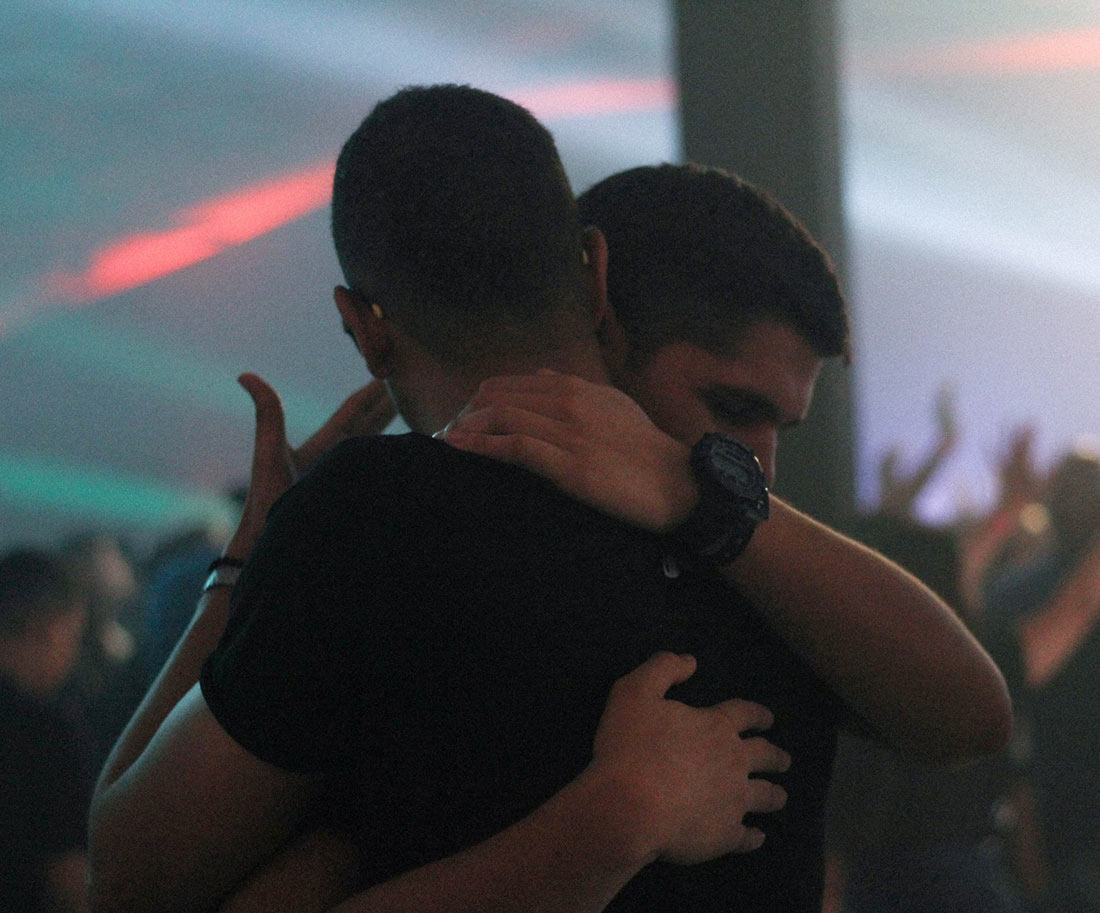
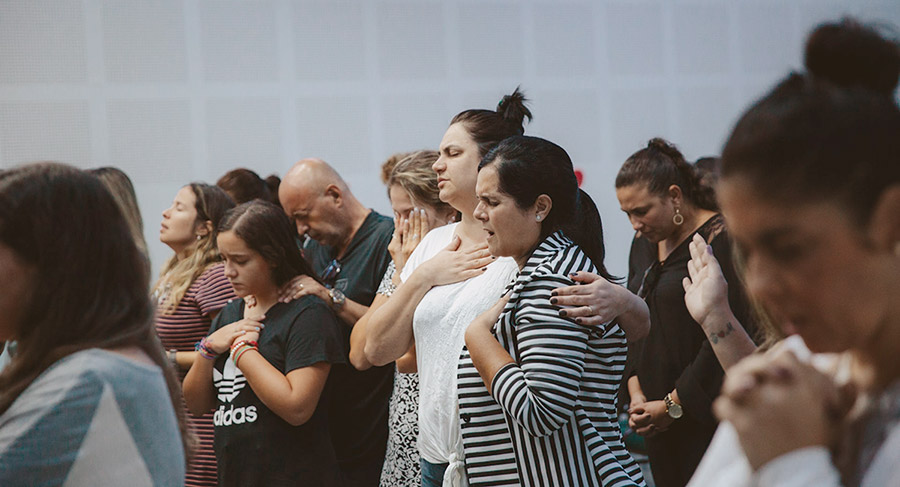
(inspired by Hosea 11:4)
And God said to all the contrite hearts,
"I will lead you with cords of human kindness,
with bands of love.
I will be to you like those who lift infants to their cheeks.
I will bend down
and feed you."
If this is not love, then who is this tender God?
If this is not forgiveness, then whose cheek is brushing your tears?
— Lani Wright, Cottage Grove, Oregon
"And is the gospel peace and love? Such let our conversation be..."
Text: Anne Steele
"Forgive our sins as we forgive, you taught us, Lord, to pray..."
Text: Rosamond E. Herklots
Text copyright (c) 1969 Oxford University Press, London
"This is a day of new beginnings, time to remember and move on..."
Text: Brian Wren
Text copyright (c) 1982 Hope Publishing Co.
"Where charity and love prevail, there God is ever found..."
Text: anonymous, tr. Omer Westendorf
Translation copyright (c) 1961 World Library Publications, Inc.
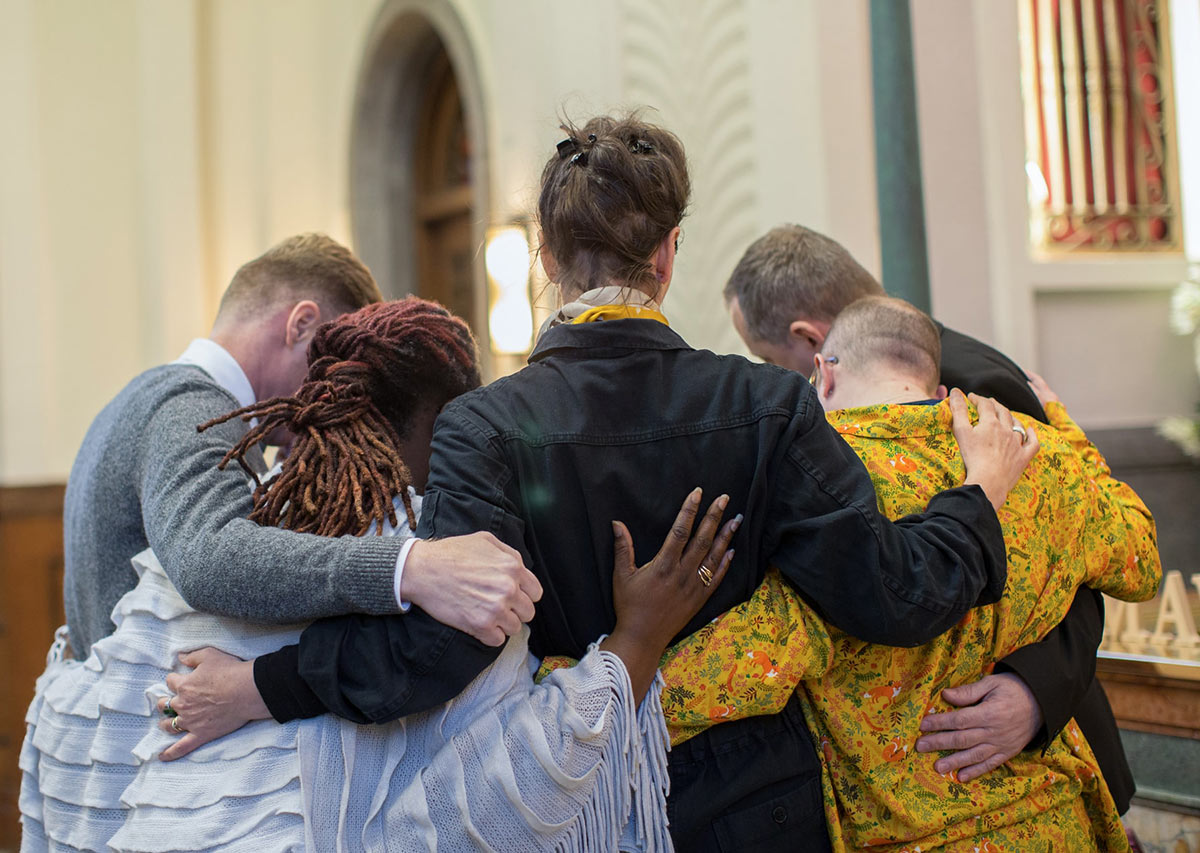

With a clarity of pitch born out of decades of experience, Tutu shows readers how to move forward with honesty and compassion to build a newer and more humane world.

How can nations — or ethnic groups, or races — after long, bitter struggles, learn to live side by side in peace? In An Ethic for Enemies, Donald W. Shriver, Jr., President Emeritus of Union Theological Seminary, argues that the solution lies in our capacity to forgive.
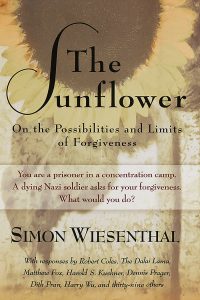
A Holocaust survivor’s surprising and thought-provoking study of forgiveness, justice, compassion, and human responsibility, featuring contributions from the Dalai Lama, Harry Wu, Cynthia Ozick, Primo Levi, and more.

The beloved Pulitzer Prize-winning author brings us the story of Ian Bedloe, the ideal teenage son, leading a cheery, apple-pie life with his family in Baltimore. That is, until a careless and vicious rumor leads to a devastating tragedy.
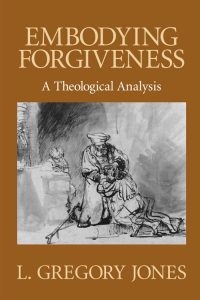
Developing a strong theological perspective on forgiveness throughout, Jones draws on films and a wide variety of literature as well as on Scripture and theological texts. In so doing, he develops a rich and comprehensive exploration of what it truly means to embody Christian forgiveness.

A beautifully written, tender, and passionate story of a man trying to put his life in perspective.

With over a million copies sold, this classic work is essential reading for all who ask, “Where has my struggle led me?”
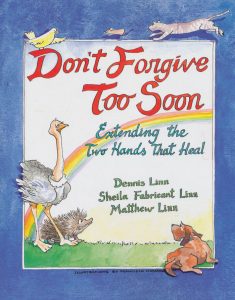
Shows how to forgive in an active, healthy way by moving through a five-step process that renounces vengeance and retaliation but is not passive or self-abusive in any way.

Filmed along the route that the actual Alvin Straight traversed in 1994 from Laurens, Iowa, to Mt. Zion, Wisconsin, The Straight Story chronicles Alvin’s patient odyssey and those he meets along the way. When not rolling along at five miles an hour aboard his ’66 lawnmower, Alvin encounters a number of strangers, from a teenage runaway to a fellow World War II veteran. By sharing his life’s earned wisdom through simple stories, Alvin has a profound impact on these characters who color his pilgrimage toward reconciliation with an estranged brother.

Based on Sister Helen Prejean’s 1993 non-fiction book Dead Man Walking: An Eyewitness Account of the Death Penalty in the United States, this film explores the relationship between Sr. Prejean and Matthew Poncelet, a convicted rapist and murderer on Louisiana’s death row.

Born on the Fourth of July portrays the story of Ron Kovic, a patriotic Catholic boy whose desire for confession and absolution fuels his personal quest for forgiveness and his political activism after being paralyzed in the Vietnam War.

This powerful, concise book lays the philosophical foundations for reconciliation and explores what it means to pursue hope in areas of brokenness in theory and practice.
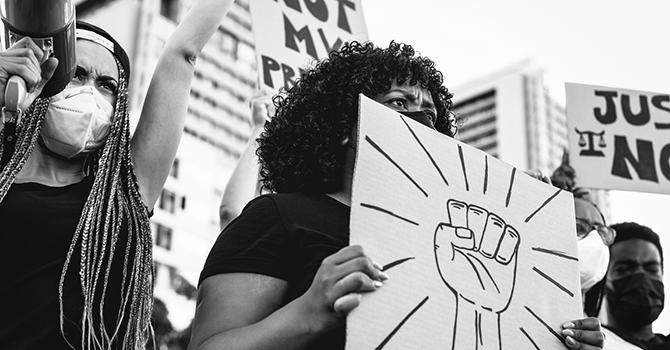
This issue of “Christian Reflection: A Series in Faith and Ethics” features a collection of essays on the topic of forgiveness. (c) 2001 The Center for Christian Ethics at Baylor University. All rights reserved. Permission is granted to reproduce these materials for personal or group study.
This is a companion study guide to the “Forgiveness” issue of “Christian Reflection: A Series in Faith and Ethics.” (c) 2002 The Center for Christian Ethics at Baylor University. All rights reserved. Permission is granted to reproduce these materials for personal or group study.
This meditation was presented at the Accompany Them with Singing Conference, January 2010.